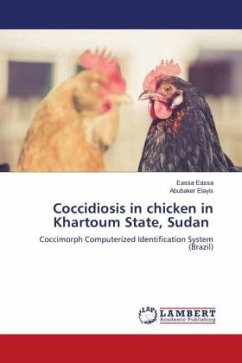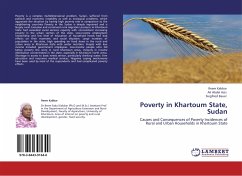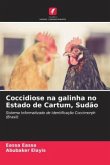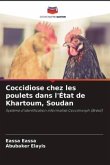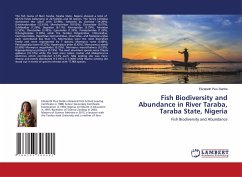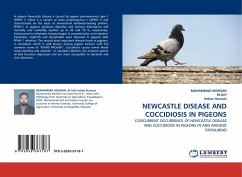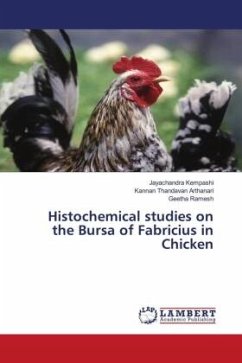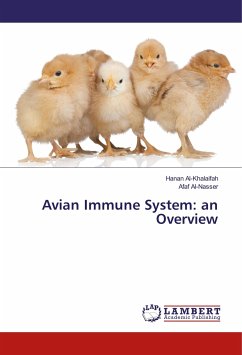The describes a study on chicken coccidiosis conducted in Khartoum State. Samples for isolation of field Eimeria spp. oocysts were collected from droppings and intestines of chickens in farms and slaughterhouses. Samples were collected from birds showing typical sings of the disease and were not subjected for treatment. Eighty samples (45 faeces and 35 intestines) were collected aseptically. Samples were identified using parasitological online Coccimorph identification system. Out of the 80 samples 54 (67.5%) were positive for Eimeria oocytes. Out of 50 samples collected from open rearing system, 33 (66.0%) were positive for Eimeria oocytes. Out of 30 samples collected from closed rearing system, 21 (70.0%) were positive for Eimeria oocytes. Out of 35 faecal samples collected for Eimeria oocytes isolation, 28 (80.0%) were positive for Eimeria oocytes. Out of 45 intestines samples collected for Eimeria oocytes isolation, 26 (57.8%) were positive for Eimeria oocytes. The identifiedEmeria spp. were: 21 Eimeria mitis (38.8%), 19 Emeria necatrex (35.2%), 7 Emeria tenella (13.0%) and 7 Emeria maxima (13.0%).
Bitte wählen Sie Ihr Anliegen aus.
Rechnungen
Retourenschein anfordern
Bestellstatus
Storno

